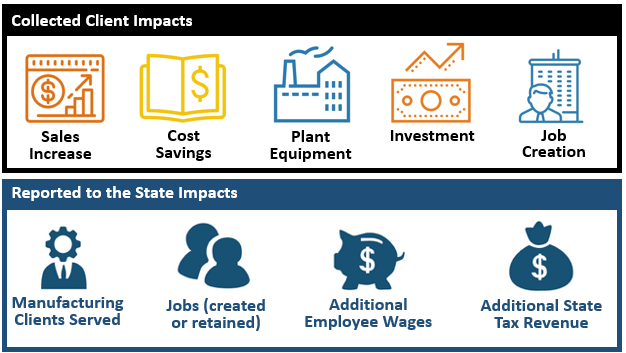Quick Guide to Extension Impacts: Small Business Development

Small Business Development
Small businesses in Utah create most of the jobs and economic growth in the state. The SBDC program was created to help increase the rates of new small business growth and decrease the rates of their failure. The centers provide management assistance and training to new or existing business owners in such critical areas as marketing, planning and financial management. They also provide entrepreneurs access to capital by helping them work with banks and lending institutions as well as modified e-station or incubator facilities for fledgling new businesses. In addition, most centers are connected to the Governor’s Office of Economic Development program for rural business outreach, which helps local officials direct resources to small businesses needing assistance. Together with other local and state economic development resources, SBDCs help local public and private institutions create entrepreneurial communities and an economic engine for growth and development.
USU has SBDCs at central campuses in Logan and Price and at regional campuses in Brigham City,Tooele,Vernal,Blanding and Moab.
- Marion Bentley USU Extension Business and Economic Development Specialist
Small Business Assistance
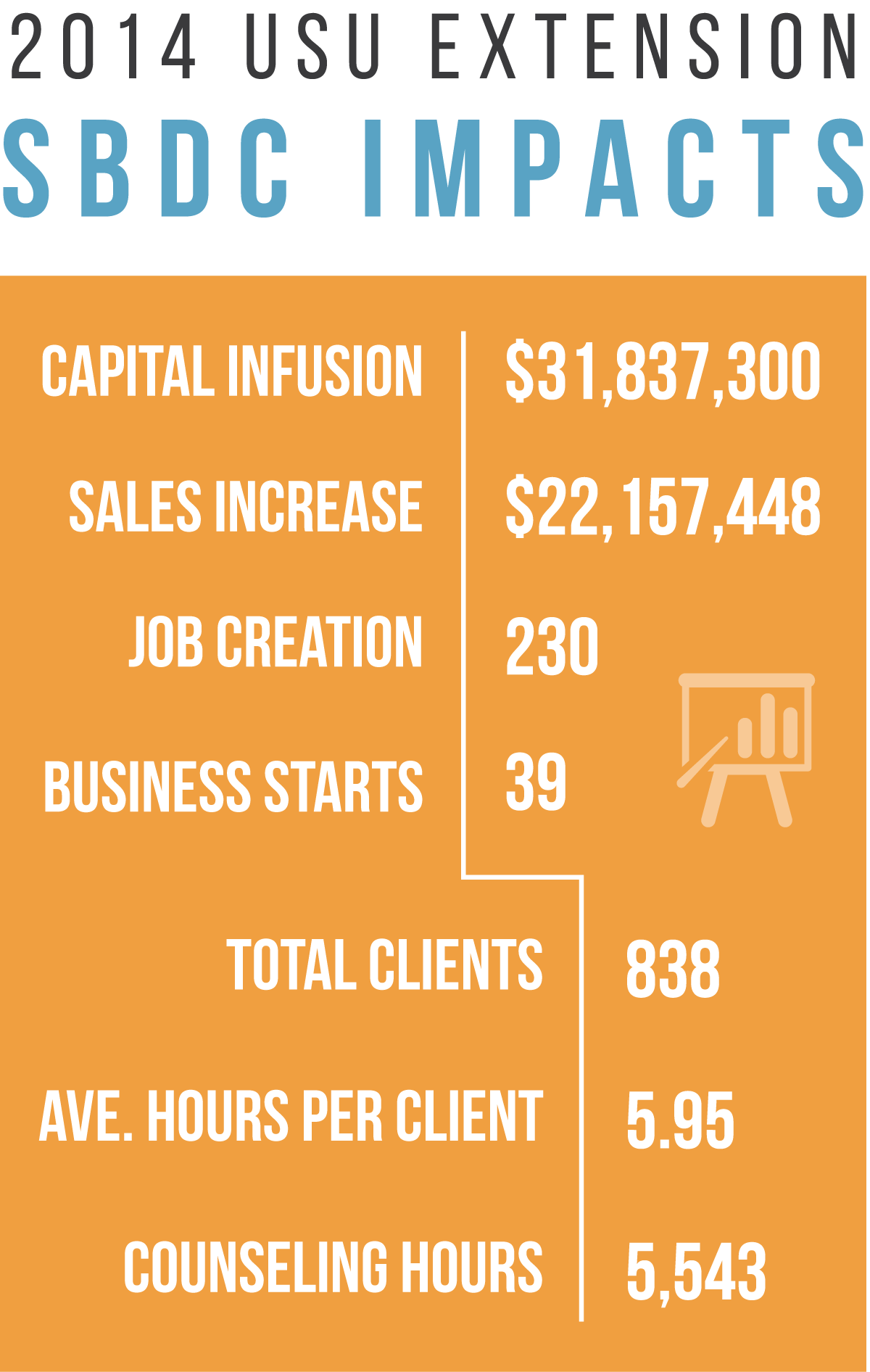
Small Business Development Centers
SBDCs provide management assistance to current and prospective small business owners. Counseling and training are provided to clients, generally free of charge. The program at Utah State University is a cooperative collaboration of the private sector, USU Extension and federal, state and local governments. The seven USU Extension SBDC offices are part of a larger network of12 SBDCs located at colleges and universities throughout Utah. SBDCs have become valuable resources for local economic development initiatives.
Business Resource Centers
BRCs provide coordination of business support, education, tracking of clients, access to sources of funding, training, technical expertise, talent and networking for new and existing businesses. Most BRCs are co-located with SBDCs and provide support to rural business development programs.
Start-up and small business assistance is provided to international refugees through a joint USU Extension and International Rescue Center project in Salt Lake County. This collaboration includes the Microbusiness Connection Center and small business curriculum development and training.
Rural Economic Development Programs
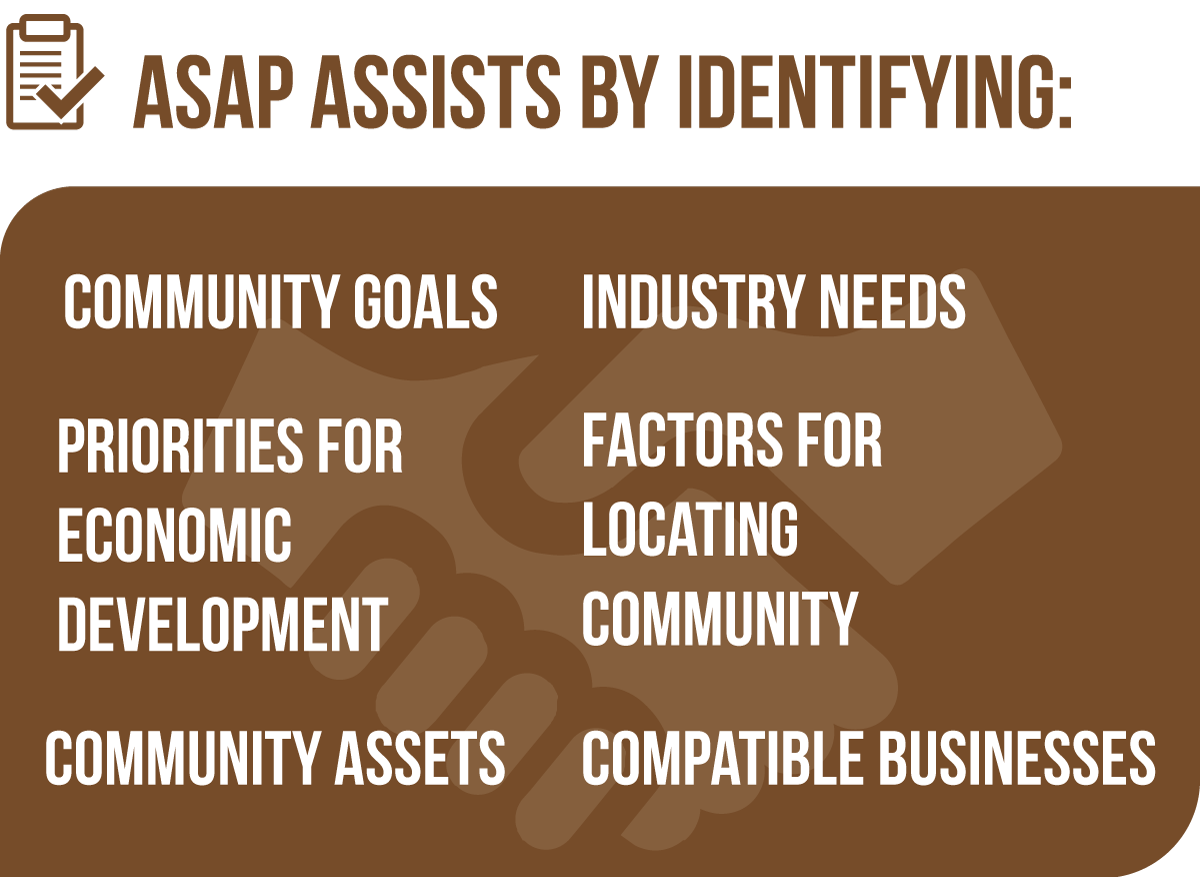
Through the Area Sector Analysis Process (ASAP), rural communities receive assistance in achieving targeted, sustainable economic development. This is done by identifying several things, including community goals and priorities for economic development; community assets that will help achieve the community’s goals and priorities; industry needs and factors important for locating operations in a community; and businesses that are compatible with the community’s goals and priorities.
Microbusiness Connection Center
The Microbusiness Connection Center (MCC) is a collaboration of Salt Lake County Extension, the USU Salt Lake City Regional Campus, International Refugee Center and Extension Business and Economic Development. The MCC provides training to refugees primarily from Northern and Central Africa and the Middle East in starting and running their own Utah business. A refugee training center with computer labs, a kitchen incubator and technical training provides assistance for startups in food production, child care and other ventures.
"Being a business owner changed my life. It was hard to begin, but now I’ve had it for four years. I am a single mother. My business helps Africans feel comfortable, and feel like they are back home. I appreciate the refugee community for shopping at my store and helping build my business.”
- Beatrice, Congo, Best African Boutique
Food Business Programs
Food quality and entrepreneurship activities focus on helping consumers, entrepreneurs and existing businesses with food production and quality of start-up food businesses throughout the state. They include training and hands-on counseling to understand and apply state and federal food quality regulations. Activities also include product labeling and packaging, the use of kitchen incubator facilities in Cache and Salt Lake counties and marketing through Utah’s Own and other retail and wholesale outlets.

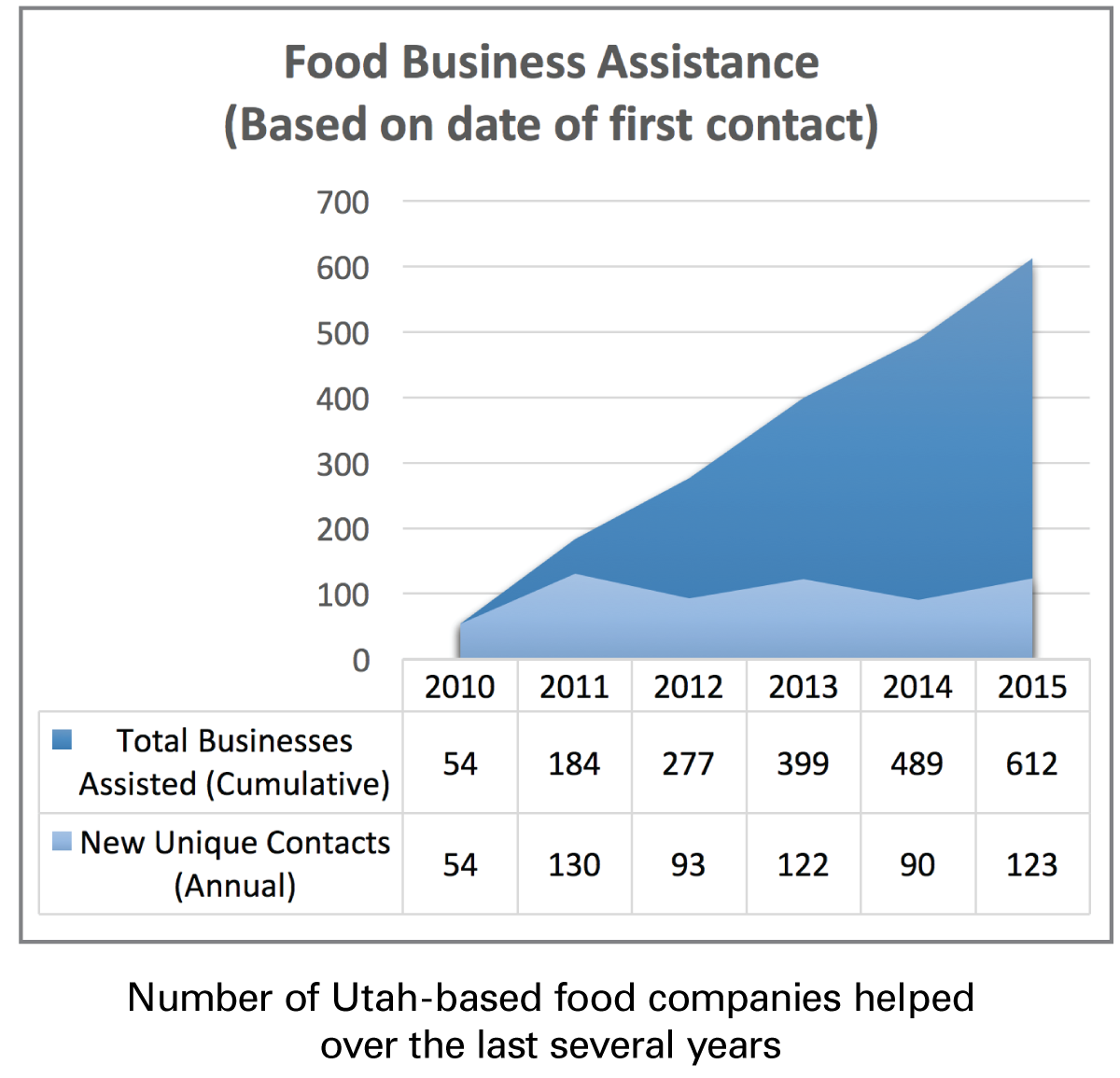
Manufacturing Extension Service
The Manufacturing Extension Service at Utah State University was founded in 1996 as part of the University's Cooperative Extension program. Our mission is to "Help Utah's companies to improve their productivity & growth." To do that, we provide a broad range of hands-on business, technical, and manufacturing optimization services, delivered by experienced, boots on the ground professionals and a comprehensive network of public and private collaborators. We help Utah manufacturers build cultures to support and sustain continuous improvement.
From 1996 to 2016, the Manufacturing Extension Service led the operational component of The Manufacturing Extension Partnership ("MEP") of Utah, which was an affiliate center for the National Institute of Standards and Technology ("NIST"). The MEP of Utah Center was a collaboration between WestCAMP, Inc. (the NIST awardee), USU, Utah Valley University, the State of Utah, and NIST. This collaboration used a network of circuit-riding engineers that provided assistance statewide to small and medium-sized manufacturing firms and helped manufacturing employers modernize their operations and become more competitive, productive, and efficient. Impacts collected from clients include such outcome factors as increased sales, cost savings, plant equipment investments, and job creation. The results from the services are well documented and are collected and analyzed to show economic return to the State of Utah.
Agricultural Entrepreneurship Programs
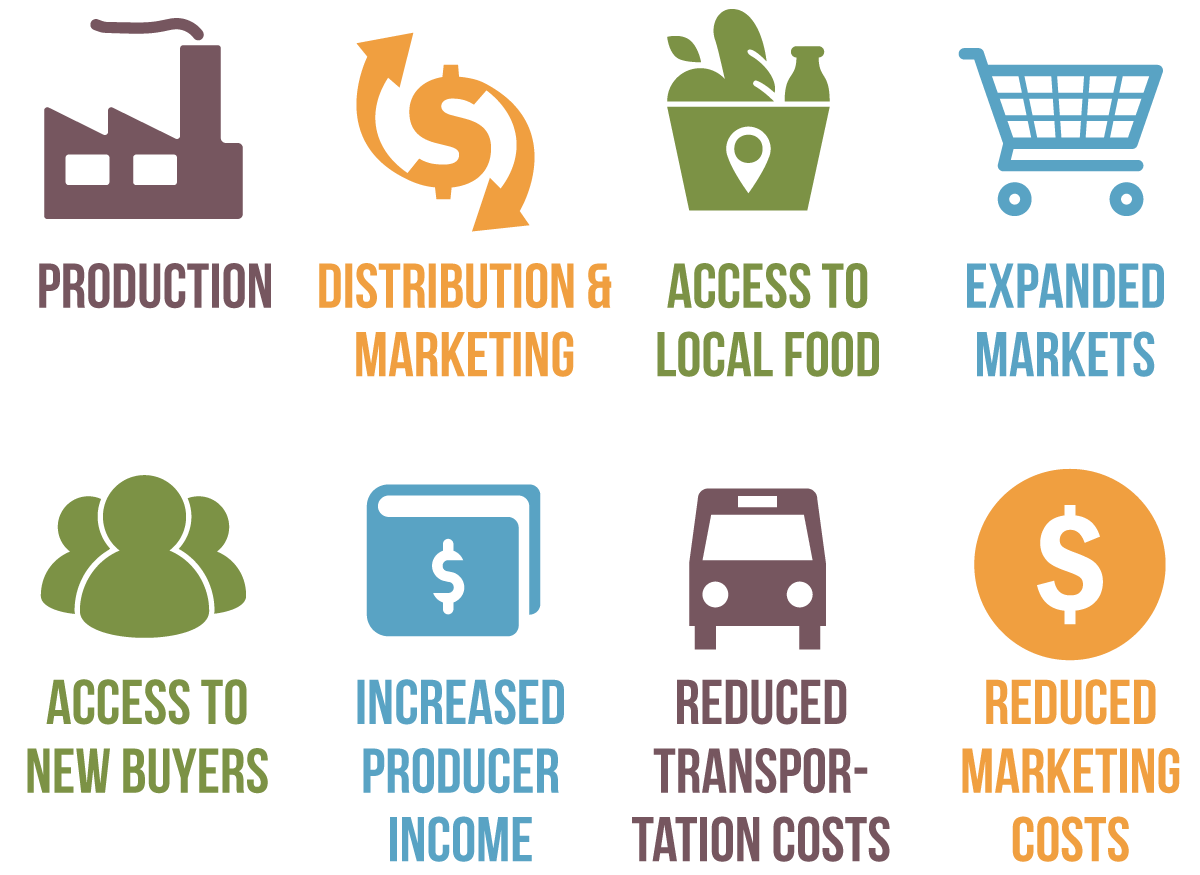
Extension agricultural entrepreneurship programs include assistance in the technical and management operations of farmers markets and training in Beginning Farmers Programs for young farm families. In addition is access to Regional Food Hub Programs, a business model that connects producers with buyers. This is done by providing production, distribution and marketing services, providing increased consumer access to local food, expanded markets for local products, increased access to new buyers, increased producer income and reduced producer transportation and marketing costs.
SBDC Success Stories
Onrucas Mobile Solutions

Onrucas Mobile Solutions is a software solution that allows a business manager to plan, schedule, track and confirm business processes. Originally it was created to focus on the energy industry, but the application can also be applied to any other business. Owner James Bird needed help with sales and support, and his attorney suggested that he meet with Mark Holmes, director of the Vernal SBDC.
“Holmes was very helpful,” said Bird. “Along with some great suggestions, he provided me with a business plan template to formulate my business from every angle. He also helped me with a cash flow projection to help forecast payables, receivables and future profits.”
With the help of SBDC, Bird started a “mastermind” group consisting of entrepreneurs who get together to network and share ideas.
Epik Solutions
Dawnell and Blake Collins opened Epik Solutions in Blanding in July of 2013. They established a method to negotiate with companies and clients before taking them to court for non-payment, allowing customers to pay off debts with lower interest without affecting their credit.
Because of the resources of the Blanding Small Business Development Center and the help of Tim Chamberlain, business advisor of the SBDC, they have hired six full-time employees, with plans to hire 35 more. The SBDC provided them with a variety of trainings, especially money management fundamentals needed to fund, market and grow a business.


 Utah 4-H & Youth
Utah 4-H & Youth